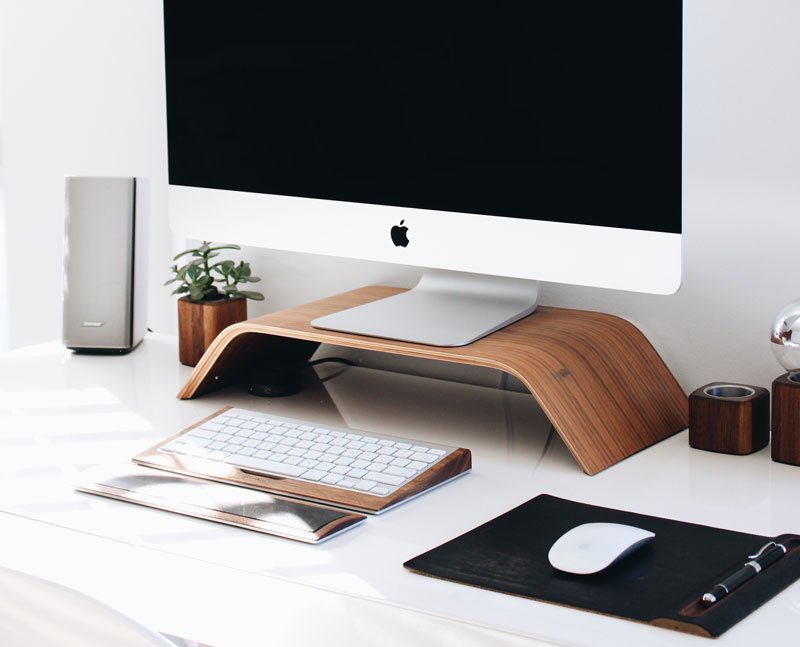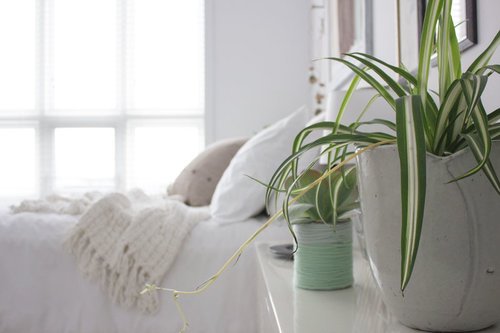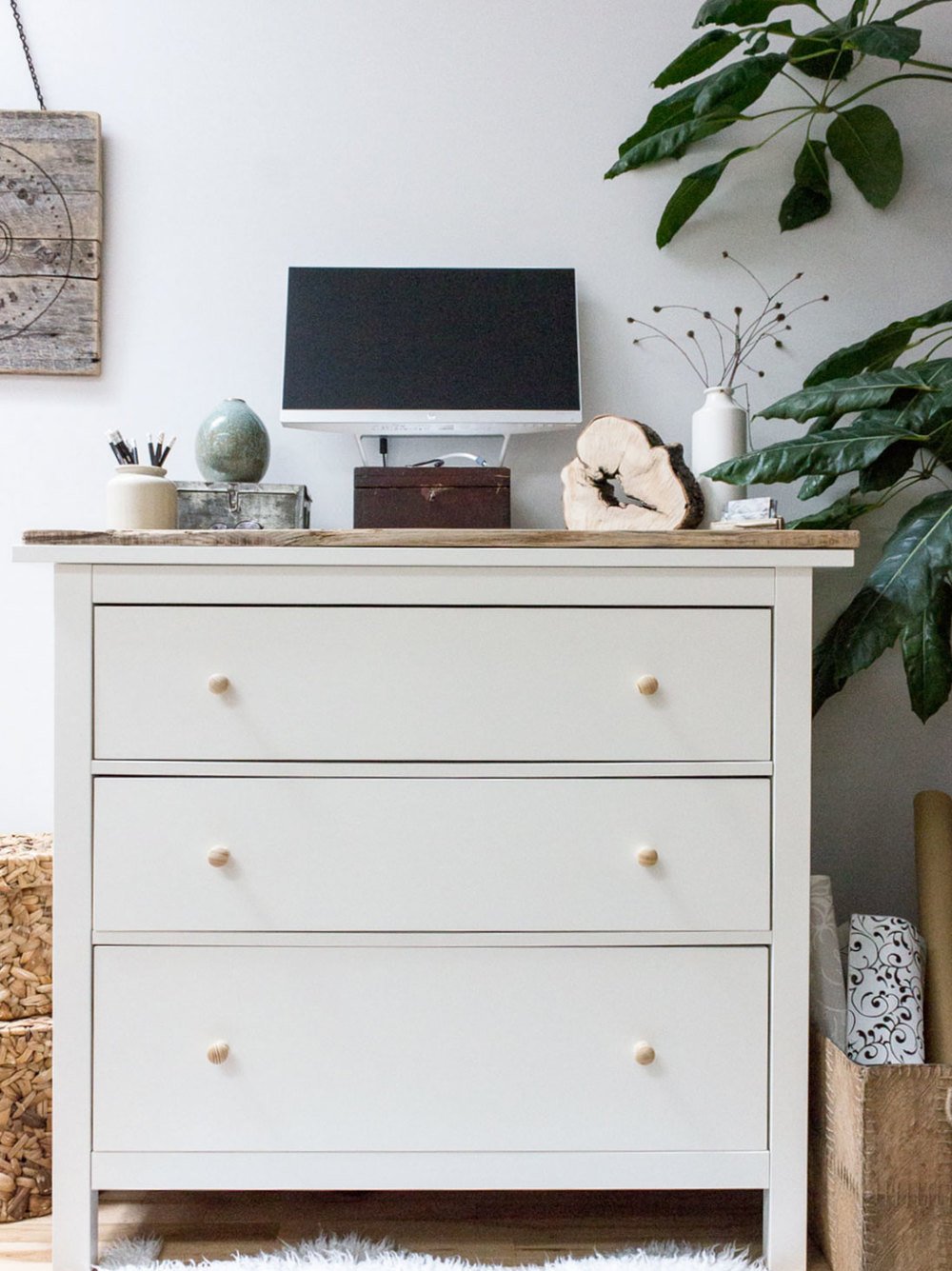How To Maintain Balance When Working From Home
Working from home comes with lots of benefits: no long commute, hot soup for lunch and flex time for family and friends.
But it also sometimes comes with the struggle to maintain a healthy balance between work and the other aspects of your life. When you work from home it's extremely easy to let your personal life blend into work life. Motivation and discipline can wane. Netflix looms ever-too-available, the leftover dessert from last night beckons from the fridge, and the dog keeps giving you those "let's go for a walk" eyes. And from the other perspective, it's also easy to let work constantly spill into your home and personal life, resulting in potentially compromised relationships and missed play and rest time in the name of work.
An office setting has a lot of built-in structures and boundaries that we take for granted when we’re there. Recreating those boundaries in our home office is a crucial part of maintaining life balance.
I’ve figured out more or less how to do that (I still feel the call of Netflix from time to time!) since I’ve been working from home for a while now. It takes a little bit of set up and practice, but these steps are worth the effort.
10 TIPS FOR MAINTAINING LIFE BALANCE WHEN WORKING FROM HOME
1. Set up a designated workspace.
Your body is amazingly attuned to your environment and habits. Setting up a separate space for work and sticking to working in this area will help your body and mind differentiate between work time and home time.
If there are others at home when you're working (even the dog) find a space where you can close the door and focus.
Invest in a comfortable chair and desk space (or create a standing desk like I did here). Use your laptop only at this designated space, not anywhere around the house, and deem this your space and yours only.
Don't work in bed or on the couch. This gets to be a bad habit where you never feel like you get away from your work. (It’s also bad for your posture).
2. Design your space for productivity.
Keep clutter at bay - both work clutter and home clutter. This post can help you get control of paper clutter.
Create the storage you need to keep files as well as printers, phone chargers and any other office tools contained within your office zone, not all over the house where you’ll waste time walking to them (and getting distracted by something else).
Consider painting your workspace white, and have good lighting (natural light if possible). A light and bright space will encourage clarity, creativity and a sense of calm that will help you stay focused.
Introduce plants to your office space to absorb excess electrical energy, freshen the air, and connect you with nature. A plant on your desk can lower stress by as much as 12%.
3. Set office hours.
They don’t have to resemble normal business hours, and your office hours can change daily based on your flexibility and needs. But setting hours and scheduling them into your weekly calendar will let your family and friends know when you're working and when you're available. And it will mentally put you in the right frame of mind. In this way, you can schedule in time to play with the dog or chat for 15 minutes with kids or a partner when they arrive home. Consider posting your office hours schedule on your office door at home so everyone will be aware.
4. Post a “Do Not Disturb” sign.
Print and hang a 'Do Not Disturb' sign on your door for the times when you need no interruptions. Let everyone in the household know about the rules when the sign is posted. You could even hang this on the outside door to your home to prevent visitors from ringing the bell and interrupting a conference call or deep writing work.
5. Get dressed.
Working in my pj's was one of the things I loved most when I first started working from home. Shuffling from bed to desk with pillow hair and coffee in-hand just in time for a conference call can be pretty freakin' awesome. But it's not productive or healthy long-term. It's important to cue your body and mind to "go to work" and give it your best, as you would when you wear your suit to the office. And then at the end of the day when you get out of your work clothes, it's easier to switch back out of work mode and turn your mind to personal matters. I'm not saying wear a suit at home, but definitely get out of your pajamas into nice yet comfy clothing. It'll also cut down on embarrassing moments when the FedEx guy catches you in your bunny slippers at 2 pm.
6. Don't multi-task.
There’s actually no such thing as multi-tasking, as our minds just end up shifting quickly back and forth from one task to the next. It wastes way more time than we think because it always take a minute or two to get back to concentrating on the first task you were doing. So don't do laundry or do the dishes during work time. Focus on one essential task at a time and respect your office hours. It’s perfectly fine to work for two hours and then take a break to clean the house if that’s the schedule you’ve set. Just make sure that you’re not jumping back and forth haphazardly or trying to do two things at once and not giving either your full attention.
7. Keep a big water bottle with you.
Just as you would at your office desk, keep a big water bottle and drink water often. I also keep a large travel mug for my coffee. I've found that a coffee cup and unlimited access to my coffee-maker meant I was running to the kitchen more than usual, resulting in caffeine overload and distraction by the "home" aspect of life.
8. Head to the coffee shop.
The biggest advantage and drawback of working at home is the solitude. Not having colleagues to bounce ideas off of, to chat with at the water cooler, or even just to smile at and say hi to can become lonely after a while. Make sure to take your laptop to a local coffee shop or community workshare space once in a while to gain back that social element. Schedule “meetings” with friends or colleagues there so you can be inspired by conversation and new ideas.
9. Create habits for winding down.
When you're at the office you wrap up work at the end of your shift so you can get home or catch the train or beat the traffic. But when you work at home, wrapping up for the day can be much more difficult to do. The computer is always within reach and it's tempting to try to get more done. Learn to develop habits that will cue your mind to wind down and let the work go until tomorrow. Do a last check of email and respond to those that are needed, then don't check it again until tomorrow (put an ‘Out of Office’ reply on your work email to let people know you’ll be responding the next day). Use your planner to check off what you've completed today and what you need to do tomorrow. Then close down the computer and let go.
10. Go with the flow.
Realize that every day won't be perfect. You'll get distracted sometimes, and other times the interruptions will seem endless. It's ok. That happens at the office too, remember? Just accept it and enjoy the positives and negatives of being able to work from home. Designing and scheduling your day, but also having a relaxed attitude and being open to whatever comes will allow you to remain creative and productive.
I'm still working on getting better at some of these steps myself (my flannel pajama bottoms are so darn comfy!), but I know that these good habits will help me feel balanced, stay focused and prevent burnout. I hope they'll help you build a healthy life balance when working from home as well.


























